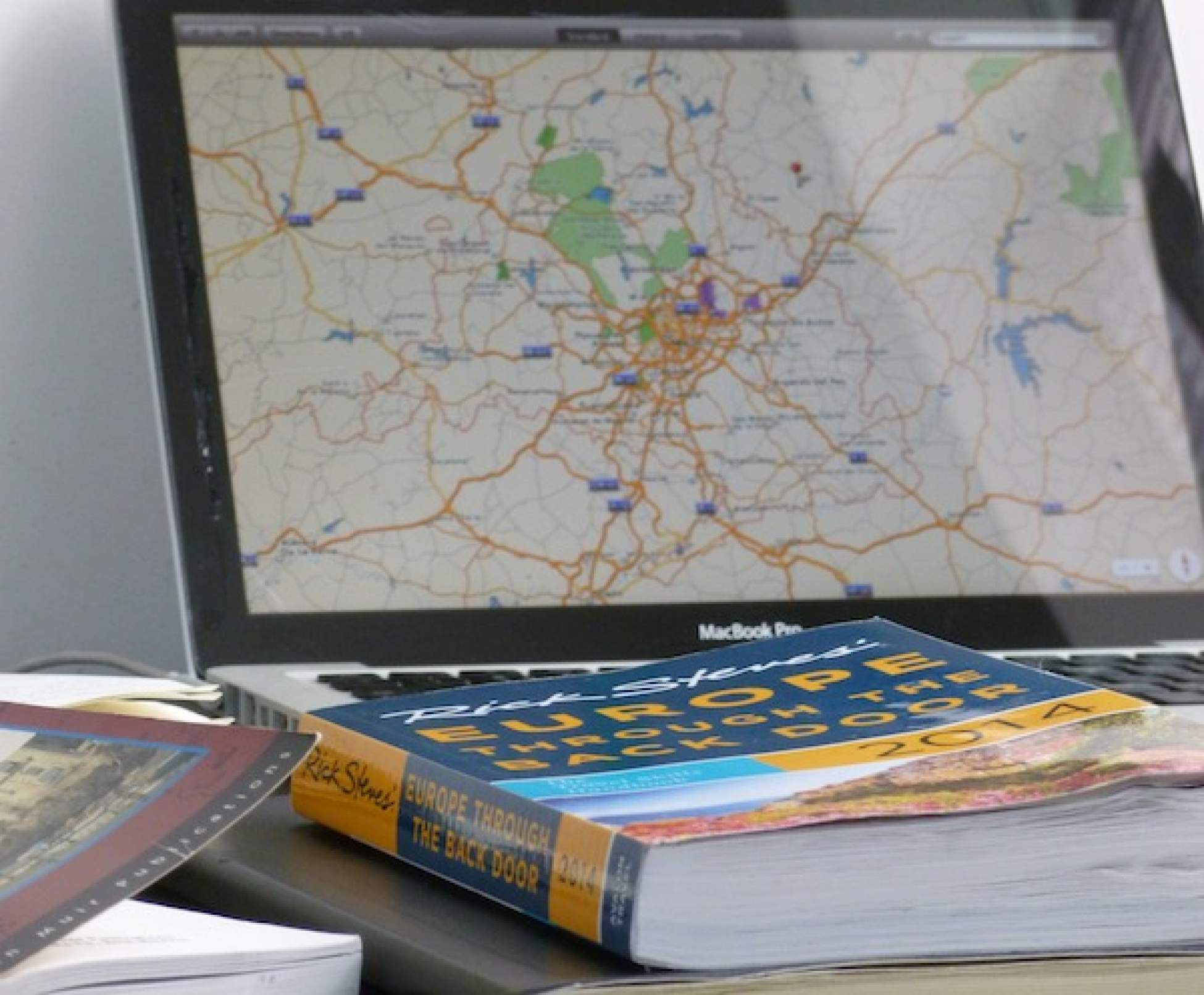Do you have a week free from volunteering in Morocco and want to travel north? Are you studying abroad in Switzerland and struggling how to divvy up your weekend escapades? Whatever it may be it doesn’t hurt to have a general plan before you begin booking flights.
Here are a few things to consider:
1. Know exactly how much time you have.
Especially if you are studying or working abroad, it’s a good idea to know how many days you will have to scour the Alps in Switzerland, kiss the Blimey Stone in Ireland and visit the “coffee houses” in Amsterdam. You can then get an idea for what destinations require more time than others, and sketch out an itinerary based on your preferences.
2. Plan points of interest according to geography.
So you want to visit the scandalous beaches of Scandinavia and hop to Sweden as well? It’s more than a good idea to cover these locations in the most efficient manner, as it will save you both time and money. Therefore, know your bearings. Find a map of Europe and study it. Know that Salzburg is only an hour and a half from Munich; Dresden is about two hours from Prague. Whether you have a home base in Europe or not, it is wise to group destinations together based on location.
3. Ask yourself the purpose for each stop.
Are you stopping in the UK from Spain simply to see the 4,500-year-old rocks of Stonehenge? If so, you may want to ask yourself if the travel fare (and time) is worth it. For a student of Renaissance art, a trip to Florence is imperative. If your family lineage lies in Greece, go to that one small town on the Peloponnese. Assure yourself that the place you’re traveling to has some personal worth—and make the best out of it, even if your ideals aren’t met.
4. Travel with the seasons in mind—tourist season, that is.
Those planning on riding the Venetian gondolas in the middle of July may want to reconsider their stop. Some cities in Europe—tourist traps—may appear like a visit to Epcot if you’re there during peak season. If you will be in Europe for a few months, it will be wise to construct your itinerary based upon what locations turn into tourist hell holes depending on the time of year.
5. Take advantage of trip planning web apps.
Tech-savvy adventurers may find that free-to-use apps make planning an itinerary a breeze. That way you can focus more so on what gelato places you are going to hit in Italy. Check out apps like Tripit or Plnnr for ideas and assistance. Even Google Maps is an indispensable tool to visualize Europe with.
6. Research, research, research!
Do you have a week to travel to Greece, and don’t know what interests you? Start researching. Study Ancient Greek architecture. Read the Odyssey or the Iliad. Watch films based in Greek (like 1981’s Clash of the Titans). Go to your local library and flip through guidebooks. Go onto Google and browse through photos, travel sites, and current issues. The more you know about a location, the more you’ll know about why you’re traveling there.
7. Take advantage of Europe’s efficient transportation.
If you haven’t heard, Europe has their stuff together with getting around. Do your research and you can fly to any city within Europe for less than 100 Euro. Check out sites like SkyScanner.com or Flycheapo.com to find budget airlines that fly within the EU. For shorter distances, go by train or bus. Your dream trek through Europe becomes more affordable when you’ve looked into what medium of transportation is the most suitable for getting from A to B, and everywhere in between.
8. For backpacking amateurs, “start mild.”
For overseas newcomers, it may not be to your greatest advantage to fly directly into a place like Morocco or Turkey. Travel guru Rick Steves recommends to “start mild,” preferably in a location similar to your native one (England’s a safe starting point for Americans). This minimizes what Steves calls “cultural hairiness,” or one’s ability to familiarize his or her self with a culture that may seem impenetrable upon first visit. Everyone else is free to meet me in Istanbul.
9. Have an overarching goal or purpose.
Some may want inspiration for a novel from travels to Paris. Others may go simply to escape the nine to five grind back home. Verge blogger Greg Snell recommends aspiring backpackers to plan a “voluntourism project,” and have their mission abroad be one of helping others. (Those interested can check the hundreds of listings on Verge.) Whatever it may be, use an overarching goal as the pilot that guides your adventure. Who knows? You may end up finding your “purpose” while overseas.
10. Don’t worry too much about the itinerary.
Keep in mind that nothing will probably go as planned. There will be cracks in the road along the way. It may help not to be a stickler for time, as travel writer Lola Reid Allin suggests. She says it helps just to slow down, and just ditch engineering a solid plan altogether. Don’t let your schedule keep you from spontaneously frolicking off to Bruges for a day or two. It helps to simply plan a ‘rough’ itinerary, not one set in stone.

